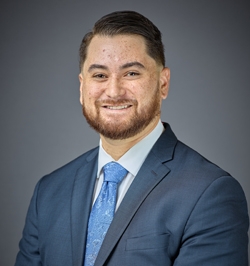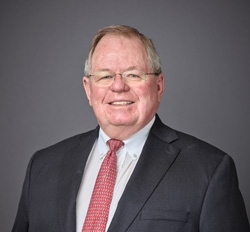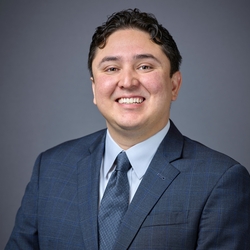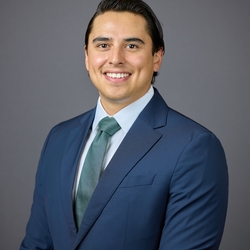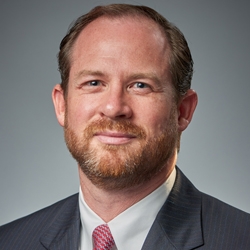DOL PROPOSES NEW OVERTIME RULE
Contact Clara (C.B.) Burns, Charles C. High, Jr., Michael D. McQueen and Gilbert L. Sanchez -
March 8, 2019
Here we go again. Yesterday, March 7, 2019, the Department of Labor (“DOL”) issued its long-awaited proposed regulations on the overtime exemptions of the Fair Labor Standards Act (“FLSA”). Are you having déjà vu? Haven’t we done this before? Yes we have.
You might remember that the DOL issued regulations on this same topic back in 2016.After the Obama Administration issued its final regulations, they were immediately challenged in court. The lower court held that the regulations were invalid. The DOL naturally appealed that decision, but the appeal was put on hold because, following the 2016 elections, the Court of Appeals gave the Trump Administration time to issue its own regulations. It did so yesterday.
The main highlights of the proposed regulations are as follows:
1. For an employer to claim that an employee is exempt from the overtime rules under the administrative, executive, or professional exemption of the FLSA, the regulations propose that the employee be paid at least $679 per week ($35,308 annually) as opposed to the current $455 per week.
2. For an employer to claim the highly-compensated employee exemption, the regulations propose that the employee be paid at least $147,414 annually as opposed to the current $100,000.
3. The other proposed change is that employers can use non-discretionary bonuses and incentive payments (including commissions) to count towards the salary level but only up to 10% of the salary. And these payments must be paid at least annually or more frequently. In other words, if an employer does not pay an employee the full $679 a week in salary, but does pay bonuses and incentive payments at least annually, the employer can use those bonuses and payments to count towards the $679 salary. But, as mentioned, employers can only do that to meet 10% of the salary requirement. Further, these bonuses or incentive payments cannot be used for the highly-compensated employee exemption.
4. Additionally, these new salary requirements will not stay the same in the future. DOL intends to proposed updates to the salary levels every 4 years. This will be done through notice-and-comment rulemaking in which all stakeholders will have a chance to review and comment on the proposed changes before they take effect.
Again, all of the above are not final rules. They are only proposed. All stakeholders have 60 days to submit their comments about the proposed rules. One possible change might be to have different salary requirements for different regions of the country. In any event, to submit comments, employers can submit their comments electronically at http://www.regulations.gov and follow the instructions for submitting comments. Or employers can mail their comments to Melissa Smith, Director of the Division of Regulations, Legislation, and Interpretation, Wage and Hour Division, U.S. Department of Labor, Room S-3502, 200 Constitution Ave. N.W., Washington, D.C., 20210.
Once these rules are finalized, employers will have to assess whether their currently exempt employees will remain exempt in light of the changes, and, if not, whether the employer wants to increase their salary to keep them exempt or would rather pay overtime. That review process should probably begin now rather than waiting for the final regulations.
If you have any questions about these regulations or the FLSA, please feel free to contact Kemp Smith’s Labor and Employment Department at 915-533-4424.
Clara (C.B.) Burns - clara.burns@kempsmith.com
Michael D. McQueen - michael.mcqueen@kempsmith.com
Charles C. High, Jr.- -charles.high@kempsmith.com
Abe Gonzalez - abe.gonzalez@kempsmith.com
Gilbert L. Sanchez - gilbert.sanchez@kempsmith.com
Scott Kendall - scott.kendall@kempsmith.com
About Kemp Smith
With offices in El Paso, Austin and Las Cruces, Kemp Smith is fully staffed to address a wide range of legal needs including Appellate, Banking, Bankruptcy and Creditors’ Rights, Corporate and Business, Energy, Environmental, Estate Planning, Government Relations, Health Care, International Law, Intellectual Property, Labor and Employment, Litigation, Probate and Trust, Public Law, Real Estate, Tax, Telecommunications and Water Law and Utilities.
Please visit www.kempsmith.com or call 915.533.4424 for more information.
You might remember that the DOL issued regulations on this same topic back in 2016.After the Obama Administration issued its final regulations, they were immediately challenged in court. The lower court held that the regulations were invalid. The DOL naturally appealed that decision, but the appeal was put on hold because, following the 2016 elections, the Court of Appeals gave the Trump Administration time to issue its own regulations. It did so yesterday.
The main highlights of the proposed regulations are as follows:
1. For an employer to claim that an employee is exempt from the overtime rules under the administrative, executive, or professional exemption of the FLSA, the regulations propose that the employee be paid at least $679 per week ($35,308 annually) as opposed to the current $455 per week.
2. For an employer to claim the highly-compensated employee exemption, the regulations propose that the employee be paid at least $147,414 annually as opposed to the current $100,000.
3. The other proposed change is that employers can use non-discretionary bonuses and incentive payments (including commissions) to count towards the salary level but only up to 10% of the salary. And these payments must be paid at least annually or more frequently. In other words, if an employer does not pay an employee the full $679 a week in salary, but does pay bonuses and incentive payments at least annually, the employer can use those bonuses and payments to count towards the $679 salary. But, as mentioned, employers can only do that to meet 10% of the salary requirement. Further, these bonuses or incentive payments cannot be used for the highly-compensated employee exemption.
4. Additionally, these new salary requirements will not stay the same in the future. DOL intends to proposed updates to the salary levels every 4 years. This will be done through notice-and-comment rulemaking in which all stakeholders will have a chance to review and comment on the proposed changes before they take effect.
Again, all of the above are not final rules. They are only proposed. All stakeholders have 60 days to submit their comments about the proposed rules. One possible change might be to have different salary requirements for different regions of the country. In any event, to submit comments, employers can submit their comments electronically at http://www.regulations.gov and follow the instructions for submitting comments. Or employers can mail their comments to Melissa Smith, Director of the Division of Regulations, Legislation, and Interpretation, Wage and Hour Division, U.S. Department of Labor, Room S-3502, 200 Constitution Ave. N.W., Washington, D.C., 20210.
Once these rules are finalized, employers will have to assess whether their currently exempt employees will remain exempt in light of the changes, and, if not, whether the employer wants to increase their salary to keep them exempt or would rather pay overtime. That review process should probably begin now rather than waiting for the final regulations.
If you have any questions about these regulations or the FLSA, please feel free to contact Kemp Smith’s Labor and Employment Department at 915-533-4424.
Clara (C.B.) Burns - clara.burns@kempsmith.com
Michael D. McQueen - michael.mcqueen@kempsmith.com
Charles C. High, Jr.- -charles.high@kempsmith.com
Abe Gonzalez - abe.gonzalez@kempsmith.com
Gilbert L. Sanchez - gilbert.sanchez@kempsmith.com
Scott Kendall - scott.kendall@kempsmith.com
About Kemp Smith
With offices in El Paso, Austin and Las Cruces, Kemp Smith is fully staffed to address a wide range of legal needs including Appellate, Banking, Bankruptcy and Creditors’ Rights, Corporate and Business, Energy, Environmental, Estate Planning, Government Relations, Health Care, International Law, Intellectual Property, Labor and Employment, Litigation, Probate and Trust, Public Law, Real Estate, Tax, Telecommunications and Water Law and Utilities.
Please visit www.kempsmith.com or call 915.533.4424 for more information.






